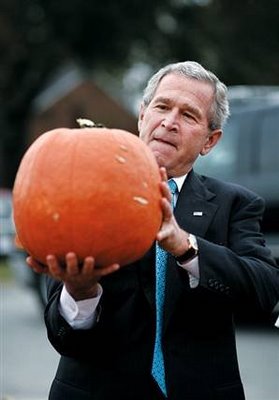American soldier deaths to date:
2793
United Kingdom deaths to date:
119
Other members of the coalition deaths to date:119
US Non Mortal Casualties of any nature (In my opinion, a wound/illness requiring intervention beyond a simple clinic visit is serious and with the stress of battlefield circumstances is due to the conflict.)
44,779 as of September 30, 2006.
Many of these soldiers are alive because of body armor. That was not available in Vietnam. If the body armor was not available we would be seeing body counts far higher and escalating faster than anything we had seen in Vietnam. The point here is, the rebels in Iraq don't have body armor. The death rates of Iraqis as reported in the journals are more than likely accurate. It brings to focus the issue of 'weighted' results in favor of the occupiers in the face of near genocide levels by some of the reporting journals of Iraqis. These are citizens of that country. The USA Coalition is not. The Iraqi death rate according to some estimates is at an extreme of 198 Iraqi death : 1 USA Coalition death due to the 'overwhelming power' of the occupiers miliary's precense. If only American loses are viewed the ratio changes to 215 : 1. Not a pretty picture. Nothing to be proud of. I do believe the research put forward by these statisticans. To deny the possiblity of this accuracy is to consent to genocide. This is the second time "The Lancet" has reported this high ratio of lose of civilian Iraqis. The first time was in 2004, I believe. For a journal with the prestige of "The Lancet" to repeat a mistake is highly unlikely. I refuse to be a part of a genocide of any kind.
Death casualties in Vietnam
U.S. MILITARY CASUALTIES IN SOUTHEAST ASIA
58,184
COMPARISON TO OTHER U.S. WARS
Revolution
4,435
War of 1812
2,260
Mexican War
13,283
Civil War (Union only)
364,511
Spanish - American War
2,446
World War I
116,516
World War II
405,399
Korea
36,913
Vietnam
58,184Lancet study puts a number on Iraqi deaths (click on)Eugene Robinson, Washington Post Writers Group
Monday, October 16, 2006(10-16) 04:00 PDT Washington -- "NOT CREDIBLE" was President Bush's quick verdict on the new study, published this week in the British medical journal The Lancet, calculating that more than 650,000 Iraqis have died as a result of the U.S. invasion and its ensuing chaos. It is understandable that the president would be quick to dismiss such an explosive claim, but the rest of us should take the time to look a bit more closely. The number of estimated deaths claimed by the study is inconceivably huge, and wildly out of scale with any previous figures we've heard. But it's difficult to avoid the conclusion that the human suffering in Iraq has been far beyond our imagining. The peer-reviewed study's named authors include three researchers from the Bloomberg School of Public Health at Johns Hopkins University -- one of them Gilbert Burnham, co-director of the school's Center for Refugee and Disaster Response -- and a professor from Baghdad's Al-Mustansiriya University. Funding for the project was provided by MIT. These are not shabby credentials.




